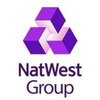Customer Service & Operations Analyst
Customer Service & Operations Analyst Interview Questions and Answers

Asked in NatWest Group

Q. What are the risks associated when banks fail to comply with the regulations set forth by the Financial Action Task Force (FATF)?
Non-compliance with FATF regulations can lead to severe financial, legal, and reputational risks for banks.
Legal penalties: Banks may face hefty fines and sanctions from regulatory bodies for non-compliance.
Reputational damage: Failure to comply can erode customer trust and damage the bank's brand image.
Increased scrutiny: Non-compliant banks may face heightened scrutiny from regulators, leading to more audits and oversight.
Operational disruptions: Compliance failures can res...read more

Asked in NatWest Group

Q. What constitutes high-risk industries, and can you provide a few examples of these industries?
High-risk industries involve significant potential for loss, liability, or safety issues, often requiring stringent regulations.
Healthcare: Hospitals and pharmaceutical companies due to patient safety and regulatory compliance.
Construction: High injury rates and liability from accidents on job sites.
Finance: Banks and investment firms face risks from market fluctuations and fraud.
Energy: Oil and gas industries deal with environmental hazards and safety concerns.
Transportation...read more

Asked in NatWest Group

Q. What is your strength and how do you use it in your personal life?
My strength is effective communication, which I use to build relationships and resolve conflicts in my personal life.
I actively listen to friends and family, ensuring they feel heard and understood.
During group projects, I facilitate discussions to ensure everyone's ideas are considered.
I resolve conflicts by calmly discussing issues and finding common ground.
I volunteer as a mentor, using my communication skills to guide and support others.

Asked in NatWest Group

Q. How can high volumes be managed effectively in pressure situations?
Effectively managing high volumes in pressure situations requires strategic planning, prioritization, and team collaboration.
Prioritize tasks based on urgency and impact; for example, addressing customer complaints before processing routine inquiries.
Implement a triage system to categorize issues; for instance, urgent medical queries should be escalated immediately.
Utilize technology and automation to streamline processes; chatbots can handle common inquiries, freeing up staf...read more

Asked in Carrier

Q. What strategies do you use to manage work-life balance?
I prioritize tasks, set boundaries, and practice self-care to maintain a healthy work-life balance.
Prioritize tasks using a to-do list to focus on high-impact activities.
Set clear boundaries by defining work hours and unplugging after hours.
Incorporate regular breaks throughout the day to recharge and maintain productivity.
Engage in hobbies or activities outside of work, such as reading or exercising, to unwind.
Utilize time management techniques like the Pomodoro Technique to...read more

Asked in Tech Mahindra

Q. How would you handle a difficult customer?
I would listen actively, empathize, and provide solutions while maintaining a calm and professional demeanor.
Listen actively to understand the customer's concerns without interrupting.
Empathize with their situation by acknowledging their feelings, e.g., 'I understand how frustrating this must be for you.'
Ask clarifying questions to get to the root of the issue, such as 'Can you tell me more about what happened?'
Offer a solution or alternative that addresses their needs, e.g.,...read more
Customer Service & Operations Analyst Jobs




Asked in ICICI Bank

Q. What do you know about banking?
Banks are financial institutions that provide various services such as accepting deposits, lending money, and facilitating financial transactions.
Banks accept deposits from customers, which can be in the form of savings accounts, checking accounts, or certificates of deposit.
Banks lend money to individuals and businesses, providing loans for various purposes such as buying a home, starting a business, or financing education.
Banks facilitate financial transactions such as wire...read more

Asked in Accenture

Q. How do banks earn money?
Banks earn money through various sources such as interest on loans, fees for services, and investments.
Interest on loans: Banks charge interest on the loans they provide to customers, generating revenue.
Fees for services: Banks charge fees for services such as account maintenance, overdrafts, and wire transfers.
Investments: Banks invest in various financial instruments to generate returns, such as stocks, bonds, and real estate.
Trading: Banks also earn money through trading a...read more
Share interview questions and help millions of jobseekers 🌟

Interview Experiences of Popular Companies








Reviews
Interviews
Salaries
Users

















